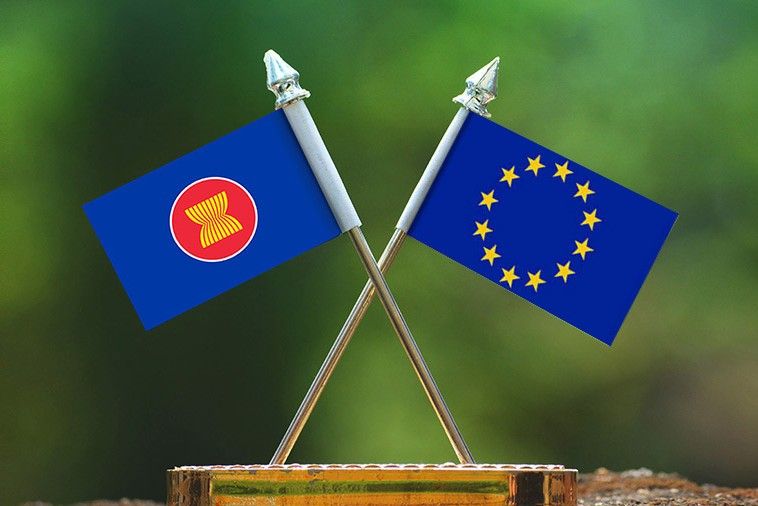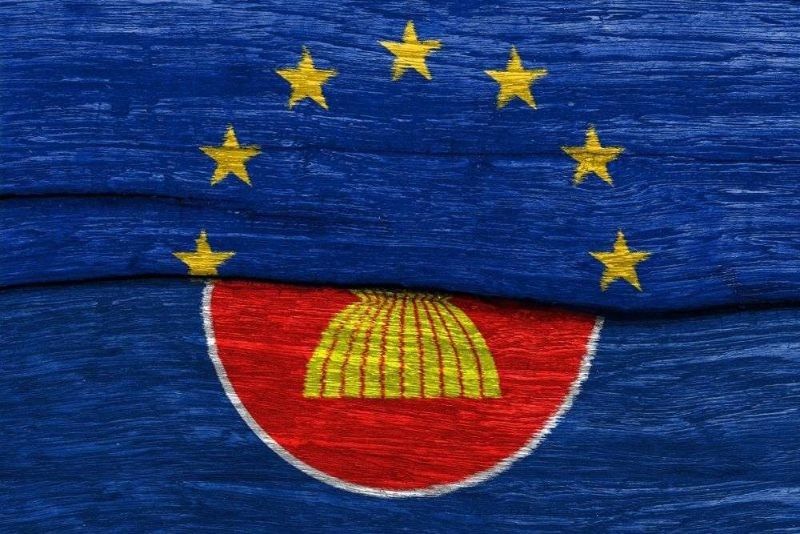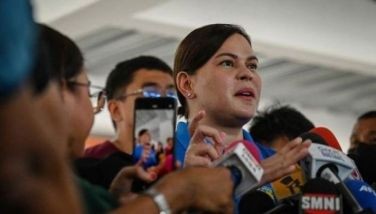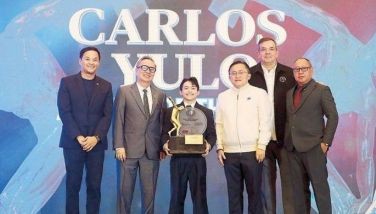45 Years of EU-ASEAN: Deeper 'understanding' that strengthens ties

MANILA, Philippines — An enhanced relationship between the Association of the Southeast Asian Nations (ASEAN) and the European Union (EU) has been a product of years of hard work, maturity and understanding, experts noted on the 45th anniversary of the two blocs' ties.
Despite being “two very different animals” whose contrasts occasionally hinder region-to-region agreement, the ASEAN and the EU have grown to have a "deep" understanding of each other in the past four decades, observed Shada Islam, senior policy adviser to the European Policy Center.
"We were talking quite a lot at each other rather than to each other. It was a very different time from what it is now," Islam said in video interview on Engage EU's website.
"I think it required a certain degree of maturity and hard work by some very important people to get that understanding through," she added.
Islam, who also teaches Asia-Europe relations at the College of Europe in Poland, said there has been a fundamental shift in how both regions see and perceive each other in the last 15 years.
"The European Union became more humble, willing to be more accepting that the world is different from ourselves. And ASEAN became more confident in its geopolitical outreach. There was less hesitancy to talk about the differences in question," she added.
Federica Mogherini, who served as the high representative of the European Union for Foreign Affairs and Security Policy, said regional forums and bilateral meetings with global ministers contributed to strengthening the ties between the ASEAN and EU.
“I used all those meetings to push as much as I could for deepening relations between the European Union and ASEAN,” she said.
Mogherini, also a former vice president of the European Commission, explained that as partners, the two blocs have become “very good” at overcoming challenges as they are candid and open about it.
She said this opennes is considered to be a good foundation for a “real friendship and partnership.”
“We were constructively finding ways to listen to each other, respect each other, and try to overcome the obstacle. I would say it worked with a little bit of creativity, I think we managed to overcome the bumps on the road,” Mogherini said.
ASEAN-EU and the youth
Bringing the youth into the global discussion is also among the shared goals of the two blocs, which have been providing platforms where young leaeders can exchange ideas on issues that affect their future.
The ASEAN has “expanded the opportunities” for the youth to participate in policy-making and community development through the ASEAN Leaders’ Interface, ASEAN Youth Forum and ASEAN You-can AMME Dialogue on Youth for Climate Action.
The EU, meanwhile, put up the Youth Sounding Board (YSB) where tomorrow's leaders can bring up solutions and influence EU agenda on key social issues their respective countries are facing.
Benjie Allen Aquino from the Philippines said being a member of the YSB has given him a greater sense of responsibility to make sure concerns are addressed through feedback.
“I think the duty for us, the members of the Youth Sounding Board, is not just to make our voices heard, but to collect the feedback [and] experiences of those sectors that are not usually given a seat at the table,” Aquino said.
For Rosario Manalo, dean of the Philippine Women’s University School of Diplomacy, the forums also shape future diplomats, who come to learn from older generations and, in turn, share what their ideas.
Mogherini shares the same hope for young participants of EU-ASEAN programs. “I’m very excited to see our young leaders coming together and reflecting together on the agenda of today and of tomorrow and I think it couldn’t be in better hands than in their hands," she said.
Senja Mulia, the founder of the Asean Youth Organization from Indonesia, said building connections among the youth is necessary for developing future policy-makers.
“We connect to the youth with different backgrounds, and then they have a discussion, build a relationship, and build a good friendship. And at the end of the day, they become policy-makers [themselves],” Mulia said.
Aquino, meanwhile, hopes that the cross-generational and cross-cultural exchanges would eleveate the youth's status in decisionmaking.
“I hope that us being young will be seen as an asset rather than a burden. Being young should be connected with empowerment [and] idealism. I hope that this becomes a trend and becomes more accepted practice in the ASEAN and EU,” he said.
Providing educational opportunities
Another fruit of the Southeast Asia-Europe partnership is how it allows occasions to make education have a much wider impact on individuals and institutions.
AYO founder Mulia saw how academic training and opportunities enabled through EU-ASEAN cam fill gaps in the education sector. Southeast Asia, he explained, has long had difficulty providing college graduates with sufficient employment.

“The jobs out there are not really relevant with what they studied before,” he said. “In this regard, probably you can foster stronger relationship[s] within the ASEAN by providing platforms for the graduates.”
He suggests that the EU could provide ASEAN youth with scholarships, fellowships, exchange programs or internships where they can learn from the experts and counterparts.
Young Europeans can also be invited to any of the 10 Southeast Asian countries, Mulia said, "to learn about their culture, exchange ideas, brainstorm," which ways contributing to more sustainable bilateral relationships.
Ambassador-at-Large Tommy Koh saw in the young a common tendency to be “relatively free of prejudice”—a trait that can be used and enhanced through education programs.
“We should give them many opportunities to travel to study abroad to intern abroad to attend workshops, conferences, and symposia that people like us organize for them,” Koh said.
“I think if we do all this, you will find a new generation of young people in the EU and in ASEAN who will see each other with unprejudiced eyes who will see each other as equal brothers and sisters,” he added.
The EU is a development partner of ASEAN. Its development programs are mainly focused on higher education and student mobility, sustaining economic integration and trade, and EU-ASEAN policy dialogue in areas of joint interest, among others. — Nillicent Bautista, Matthew Dave Jucom and Dawn Danielle Solano
- Latest




























